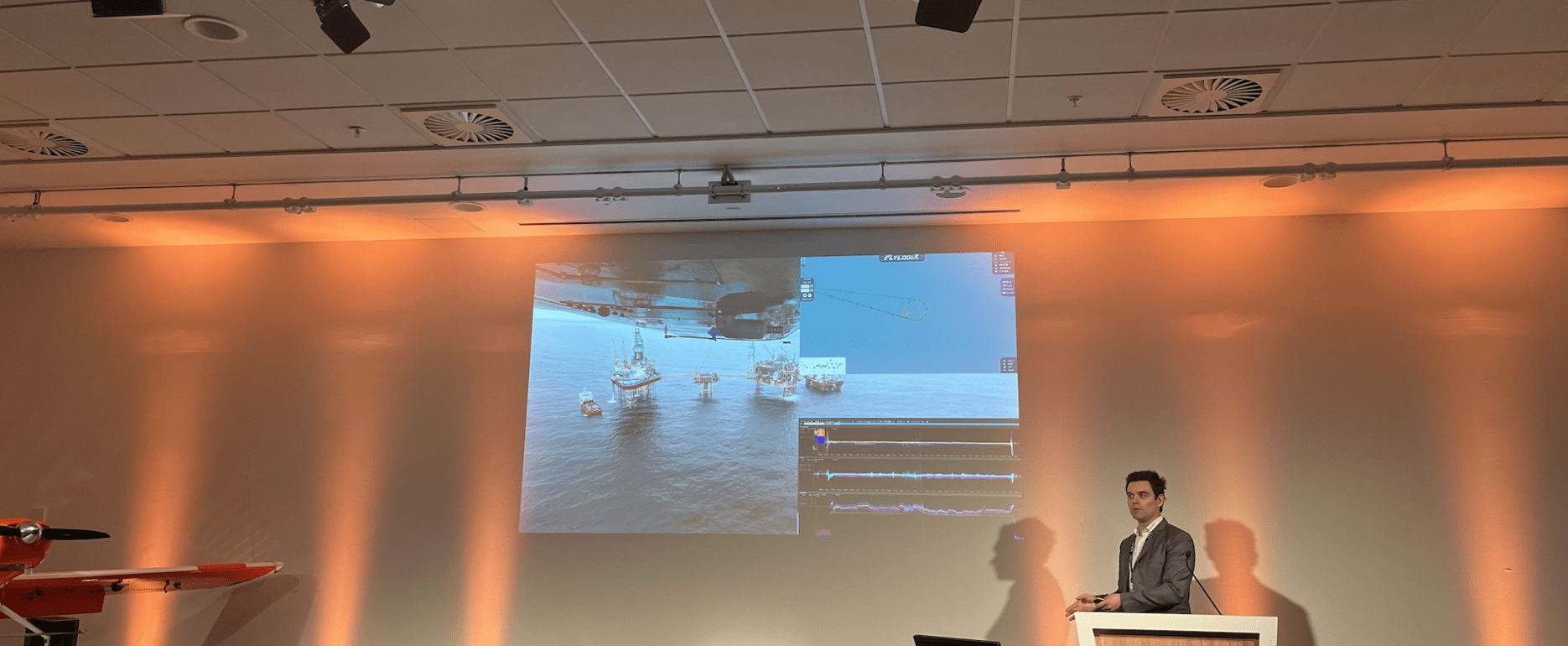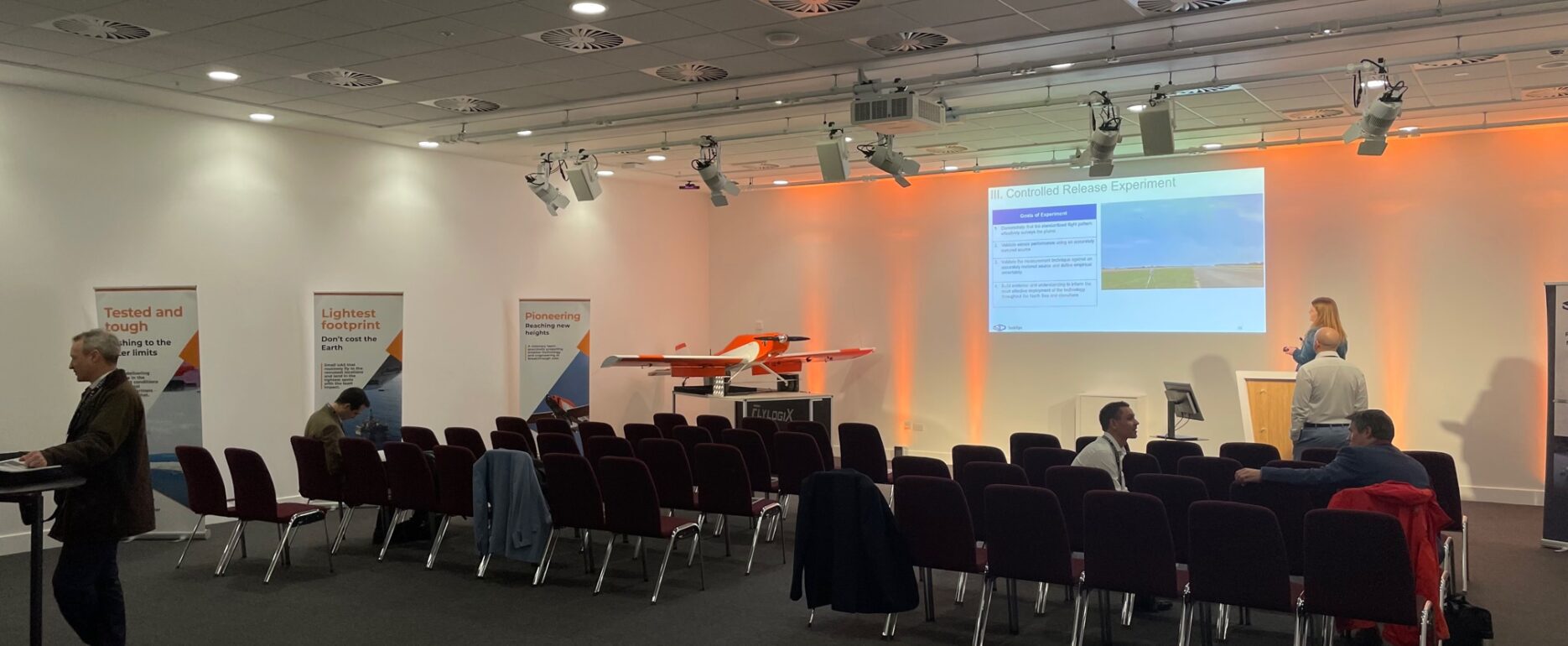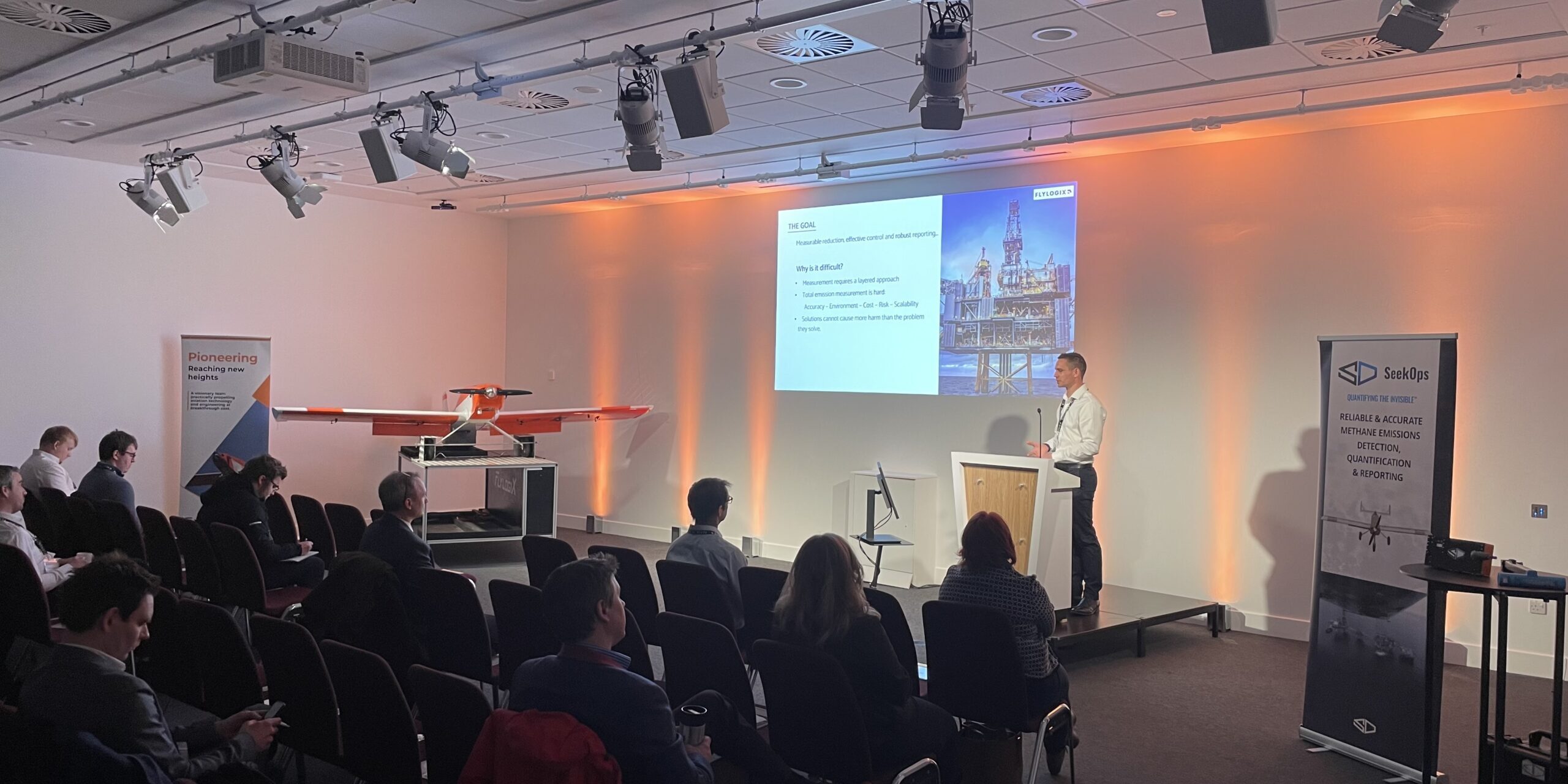Follow-up event to discuss the learnings from methane emissions measurement project led by Flylogix, NZTC and SeekOps.
Between February 2020 and October 2021, working in partnership with NZTC, SeekOps and six major energy industry players, Flylogix operated 12,500 kilometres of unmanned flight, enabling 2.5 million methane concentration readings. The work was all part of a pioneering project developing a method for accurate quantification of methane emissions offshore. The technique combines the tested and tough Flylogix unmanned system with the ultra-sensitive methane sensor engineered by SeekOps.
Having achieved great success with the project the consortium committed to sharing the technology and their own insights and experience in an open forum with the wider energy community.
Putting technology, methodology and data under the spotlight
The aim of the event for Flylogix was to put the technology, the methodology, the results, the data and its application, under the spotlight. The event attracted a broad-based audience from the energy industry – many of the organisers and delegates enjoying one of the first opportunities to meet face-to-face since early 2020, and others attending online.
Speakers representing all of the major project partners were joined by Andris Piebalgs, chair of the International Methane Emissions Observatory (IMEO) Implementation Committee who gave the keynote address on ‘The Importance of Action’, and Thibaut Cheret, Emission Improvement Manager at Offshore Energies UK (OEUK) who delivered an Industry Insight presentation on ‘North Sea Transition Deal and Methane Action Plans’.
Rebecca Allison of the Net Zero Technology Centre, opened the event by ‘Framing the Problem’ of methane emissions measurement, highlighting the critical role of collaboration and innovation in meeting the urgent climate change targets the industry faces.
“From February 2020 until October 2021 was really the heart of ‘learning by doing’, when we went out almost every month with a different operator, to a different set of assets, collected a set of methane emissions data, came back, looked at that, reviewed it, came up with a different hypothesis, changed it, went back out the next month to do the same,” said Chris Adams in opening the event and welcoming delegates.
“We were delighted that stakeholders such as Peter Evans from bp and Kris Kydd from TotalEnergies were able to join us and give further insights into how they are approaching the problem of methane emission measurement and reduction based on their learning over the last year or so,” said Chris Adams.


Understanding uncertainty
“Abigail Corbett – an environmental scientist at SeekOps – gave a really important technical presentation on measurement and understanding the level of uncertainty around any such exercise. One of the things that we’re really proud of in this project is the exercise that we undertook to ‘measure how accurately we measure’ things. Where many projects around measurement would model the achievable level of accuracy on a computer, we simulated an offshore platform, released a controlled amount of methane and then compared what our sensors picked up with the empirical data of what we’d actually released. That gave us a level of confidence in the methane measurement data that just can’t be achieved sitting at a desk.”
In the Keynote Address to round up the conference, Andris Piebalgs talked about how the data that we are generating can usefully plug into the IMEO’s master system, and how the energy sector can have a meaningful impact on the Global Methane Pledge to which COP 26 committed.
Tom Cowan, commercial projects manager at Flylogix was pleased that the event was so well attended by a range of energy industry representatives. “Each of the operators has their own subset of objectives and challenges in the methane space, and their engagement allows us all to increase our learnings from this project. I think that everyone really appreciated the core aim of ‘learning by doing’ – of taking the results from live projects, but always looking to improve and move on, rather than remaining in the realm of a theoretical, science project. That is certainly the ethos on which Flylogix is based.”





